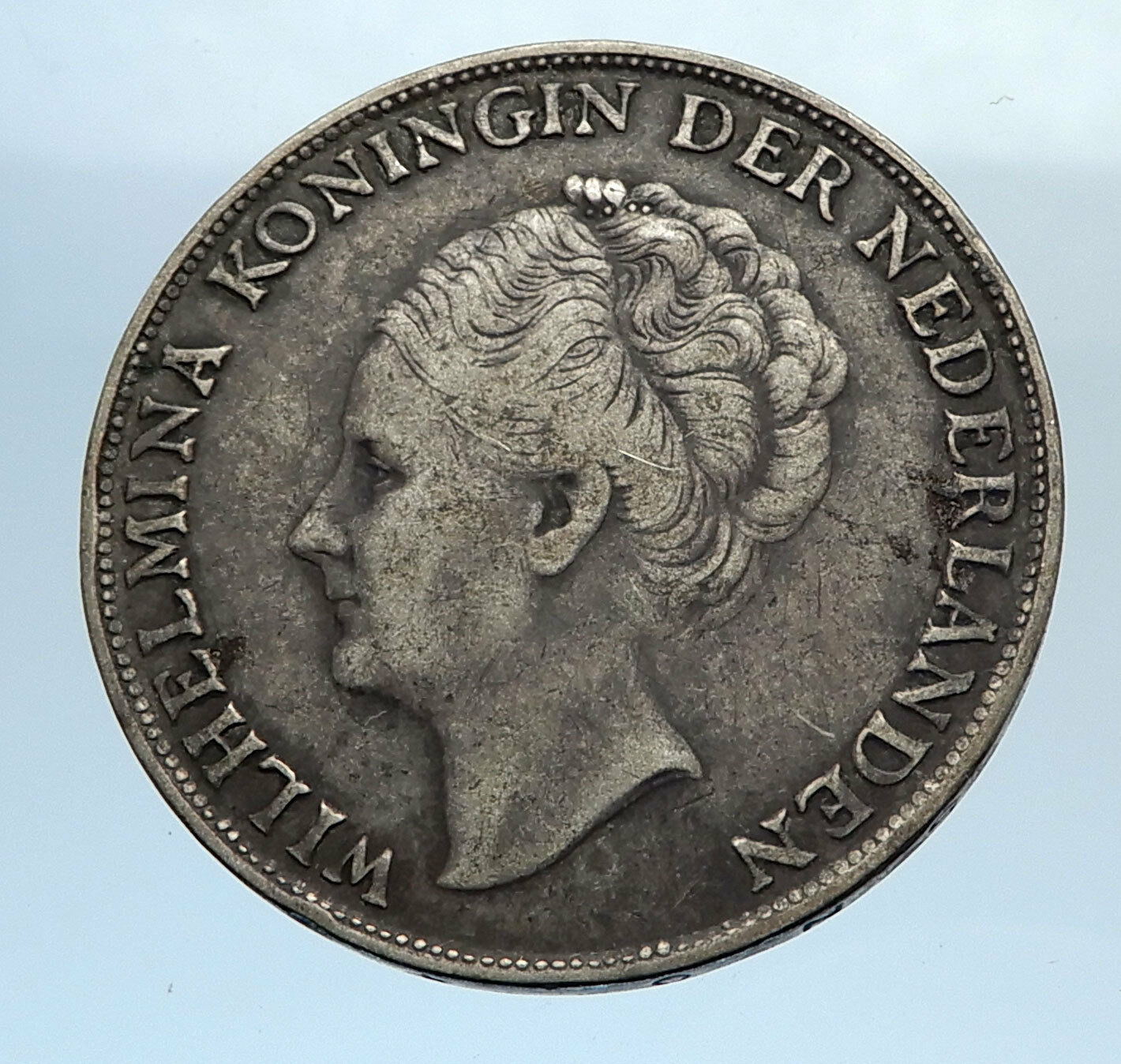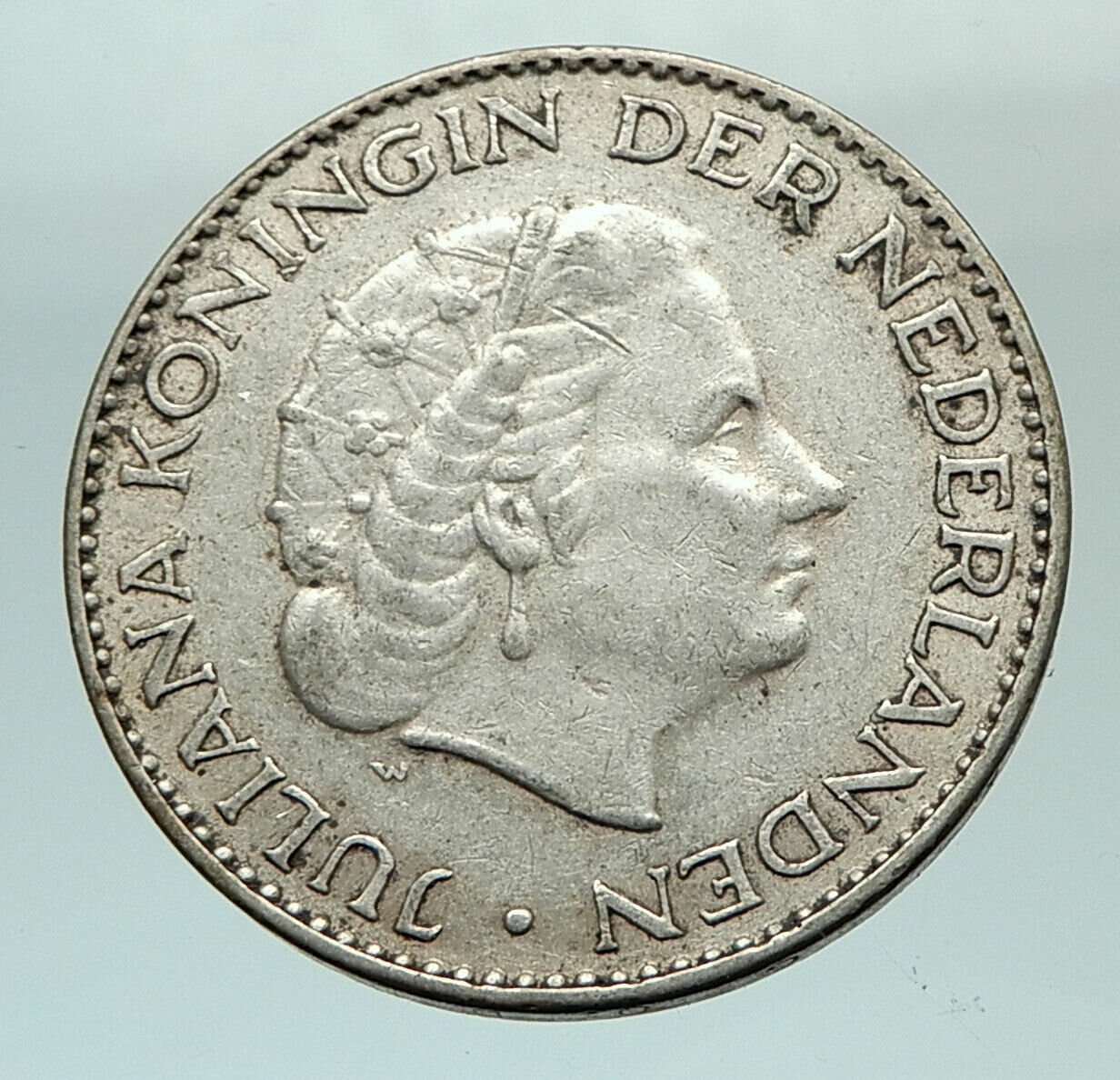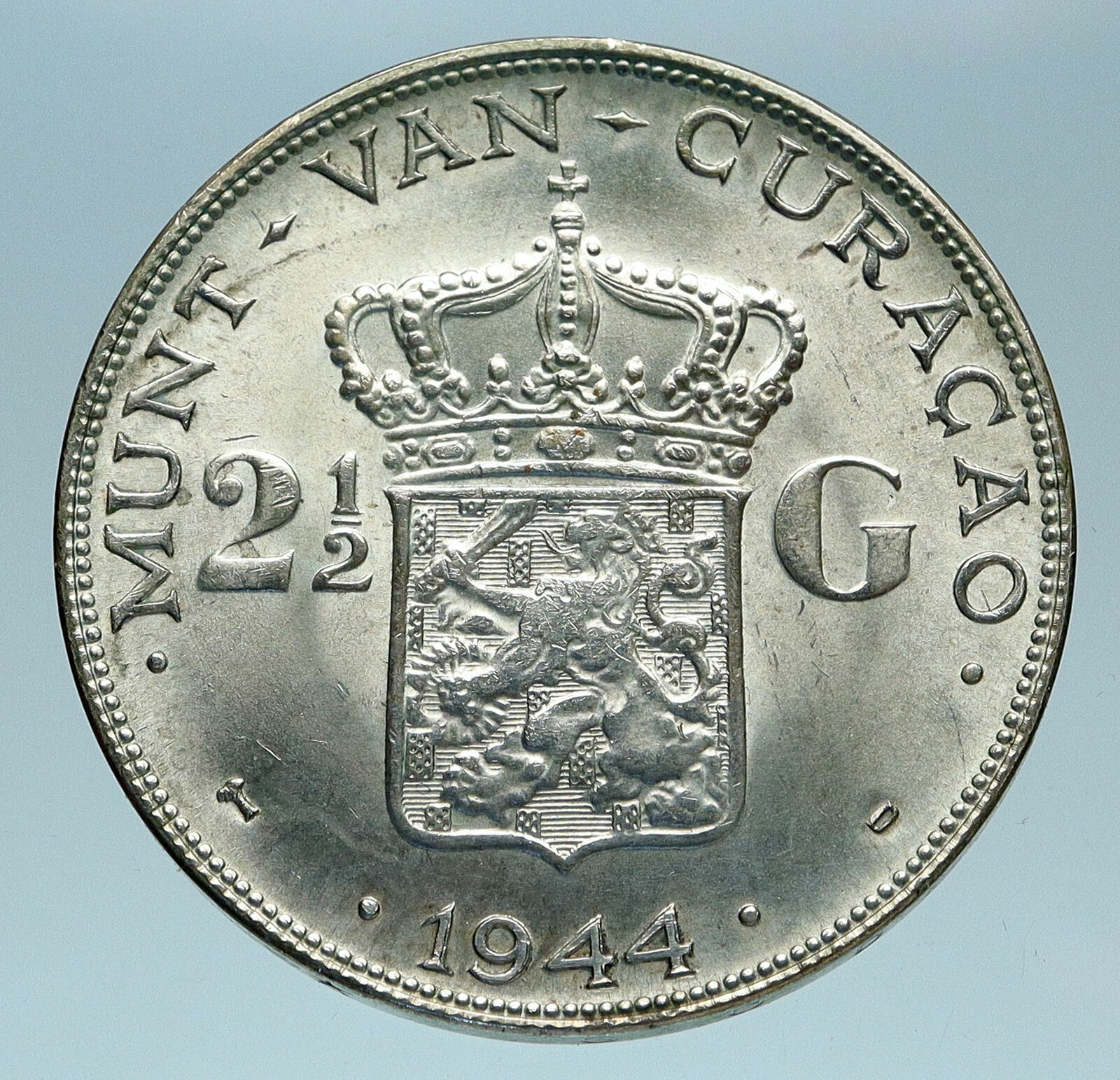|
Netherlands – Queen Beatrix of the Netherlands (Ruled 1980-2013) Millennium
1999 Proof Silver 10 Gulden 33mm (15.00 grams) 0.800 Silver (0.3858 oz. ASW)
Reference: KM# 228 | Engraver: Hewald Jongenelis
BEATRIX KONINGIN DER NEDERLANDEN 1999 10 GULDEN, Concentric ovals, Beatrix head outline above.
BEATRIX KONINGIN DER NEDERLANDEN 2000 10 GULDEN, Concentric ovals, Beatrix head outline above.
Edge Lettering:
GOD ZIJ MET ONS
You are bidding on the exact item pictured, provided with a Certificate of Authenticity and Lifetime Guarantee of Authenticity.
 Beatrix of the Netherlands (Beatrix Wilhelmina Armgard; born 31 January 1938) is a member of the Dutch royal family who reigned as Queen of the Netherlands from 30 April 1980 until her abdication on 30 April 2013. Beatrix of the Netherlands (Beatrix Wilhelmina Armgard; born 31 January 1938) is a member of the Dutch royal family who reigned as Queen of the Netherlands from 30 April 1980 until her abdication on 30 April 2013.
Beatrix is the eldest daughter of Queen Juliana and her husband, Prince Bernhard of Lippe-Biesterfeld. Upon her mother’s accession in 1948, she became heir presumptive. Beatrix attended a public primary school in Canada during World War II, and then finished her primary and secondary education in the Netherlands in the post-war period. In 1961, she received her law degree from Leiden University. In 1966, Beatrix married Claus von Amsberg, a German diplomat, with whom she had three children. When her mother abdicated on 30 April 1980, Beatrix succeeded her as queen.
Beatrix’s reign saw the country’s Caribbean possessions reshaped with Aruba’s secession and becoming its own constituent country within the Kingdom in 1986 as well as the subsequent Antillean Dissolution in 2010, which created the new special municipalities of Bonaire, Sint Eustatius, and Saba, and the two new constituent countries of Curaçao and Sint Maarten.
On Koninginnedag (Queen’s Day), 30 April 2013, Beatrix abdicated in favour of her eldest son, Willem-Alexander, and resumed the title of princess. At the time of her abdication at age 75, Beatrix was the oldest reigning monarch in the country’s history.
 The Kingdom of the Netherlands, commonly known as the Netherlands, is a sovereign state and constitutional monarchy with territory in western Europe and in the Caribbean. The Kingdom of the Netherlands, commonly known as the Netherlands, is a sovereign state and constitutional monarchy with territory in western Europe and in the Caribbean.
 .svg/220px-Kingdom_of_the_Netherlands_(orthographic_projection).svg.png) The four parts of the Kingdom – Aruba, Curaçao, Sint Maarten and the Netherlands – are constituent countries (landen in Dutch) and participate on a basis of equality as partners in the Kingdom. In practice, however, most of the Kingdom affairs are administered by the Netherlands – which comprises roughly 98% of the Kingdom’s land area and population – on behalf of the entire Kingdom. Consequently, the countries of Aruba, Curaçao, and Sint Maarten are dependent on the Netherlands for matters like foreign policy and defence, although they are autonomous to a certain degree with their own parliaments. The four parts of the Kingdom – Aruba, Curaçao, Sint Maarten and the Netherlands – are constituent countries (landen in Dutch) and participate on a basis of equality as partners in the Kingdom. In practice, however, most of the Kingdom affairs are administered by the Netherlands – which comprises roughly 98% of the Kingdom’s land area and population – on behalf of the entire Kingdom. Consequently, the countries of Aruba, Curaçao, and Sint Maarten are dependent on the Netherlands for matters like foreign policy and defence, although they are autonomous to a certain degree with their own parliaments.
The vast majority in land area of the constituent country of the Netherlands (as well as the Kingdom) is located in Europe, with the exception of the Caribbean Netherlands: its three special municipalities (Bonaire, Saba, and Sint Eustatius) that are located in the Caribbean. The constituent countries of Aruba, Curaçao, and Sint Maarten are located in the Caribbean as well.
|





 Beatrix of the Netherlands (Beatrix Wilhelmina Armgard; born 31 January 1938) is a member of the Dutch royal family who reigned as Queen of the Netherlands from 30 April 1980 until her abdication on 30 April 2013.
Beatrix of the Netherlands (Beatrix Wilhelmina Armgard; born 31 January 1938) is a member of the Dutch royal family who reigned as Queen of the Netherlands from 30 April 1980 until her abdication on 30 April 2013.  The Kingdom of the Netherlands, commonly known as the Netherlands, is a sovereign state and constitutional monarchy with territory in western Europe and in the Caribbean.
The Kingdom of the Netherlands, commonly known as the Netherlands, is a sovereign state and constitutional monarchy with territory in western Europe and in the Caribbean.
.svg/220px-Kingdom_of_the_Netherlands_(orthographic_projection).svg.png) The four parts of the Kingdom – Aruba, Curaçao, Sint Maarten and the Netherlands – are constituent countries (landen in Dutch) and participate on a basis of equality as partners in the Kingdom. In practice, however, most of the Kingdom affairs are administered by the Netherlands – which comprises roughly 98% of the Kingdom’s land area and population – on behalf of the entire Kingdom. Consequently, the countries of Aruba, Curaçao, and Sint Maarten are dependent on the Netherlands for matters like foreign policy and defence, although they are autonomous to a certain degree with their own parliaments.
The four parts of the Kingdom – Aruba, Curaçao, Sint Maarten and the Netherlands – are constituent countries (landen in Dutch) and participate on a basis of equality as partners in the Kingdom. In practice, however, most of the Kingdom affairs are administered by the Netherlands – which comprises roughly 98% of the Kingdom’s land area and population – on behalf of the entire Kingdom. Consequently, the countries of Aruba, Curaçao, and Sint Maarten are dependent on the Netherlands for matters like foreign policy and defence, although they are autonomous to a certain degree with their own parliaments.




